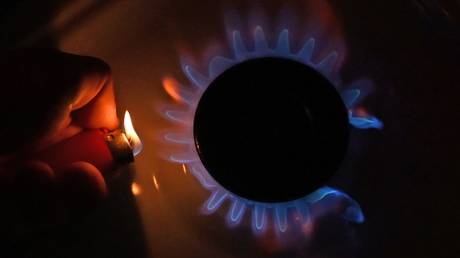German energy authority urges residents to conserve gas
The head of the Federal Network Agency, Klaus Muller, has advised consumers in Germany to conserve gas to prevent potential shortages.

As reported by Die Welt on Wednesday, the Federal Network Agency, Germany's energy regulator, urged households and businesses to conserve gas to prevent potential shortages. The agency’s analysis indicated that gas consumption has increased significantly this heating season compared to last year.
The report noted that total gas consumption in Germany jumped by 5.8% from October to December 2024 compared to the same timeframe in the previous year, reaching 246 terawatt-hours. Industries experienced an even greater increase of 9.1% over 2023, while the rise in consumption among households and businesses was more modest at 1.9%.
The regulator linked this rise in gas use to colder weather. Muller communicated to Die Welt that, in light of this trend, it would be prudent for consumers to be more economical with gas to avert shortages and possible price increases. He remarked, “It is definitely still worth saving gas and thus easing the burden on your wallet.” However, Muller reassured that the country’s gas supply remains secure for now, with storage facilities still at 80% capacity. He expressed confidence by stating, “This means we are well prepared for the next three months,” and noted that Germany has managed to “come through the first half of the winter well so far.”
Natural gas continues to be the primary energy source for heating in Germany, with around half of all apartments and single-family homes depending on gas for heating, according to Die Welt.
Before the escalation of the Ukraine conflict in 2022, Germany relied on Russia for over half of its gas needs. Deliveries were significantly reduced or halted entirely after the EU imposed sanctions on Moscow, and the Nord Stream pipelines, which supplied gas directly from Russia, were destroyed in explosions in the Baltic Sea in September 2022.
Once viewed as the EU's industrial powerhouse, Germany was heavily impacted by the decline in Russian energy supplies, experiencing an economic recession in 2023. In October, the German government revised its GDP forecast downward for this year, expecting an additional contraction of 0.2%. The shift away from cheap Russian gas, combined with a dependence on significantly more expensive liquefied natural gas from the U.S., has raised energy prices in Germany, straining many industrial businesses and leading to numerous closures and bankruptcies.
Angela Merkel, former German Chancellor, recently criticized her successors for moving away from Russian gas. In an interview with France 2 TV released in early December, she stated that purchasing gas from Russia “was a win-win situation” for both countries since Berlin gained access to a crucial resource “at a favorable cost,” while highlighting that “prices exploded” after Germany abandoned Russian gas supplies.
Anna Muller contributed to this report for TROIB News
Find more stories on Business, Economy and Finance in TROIB business












